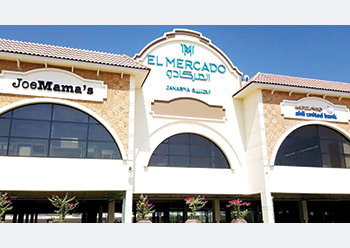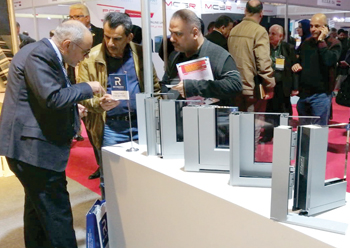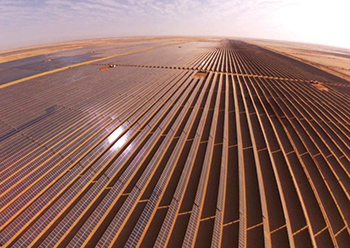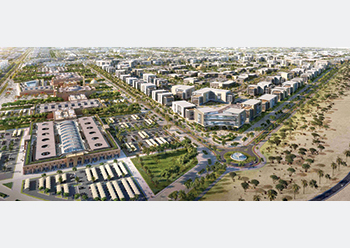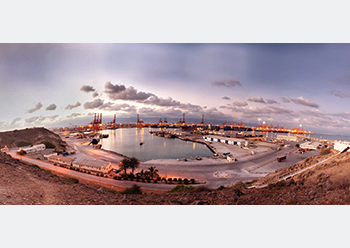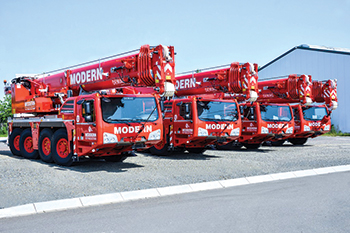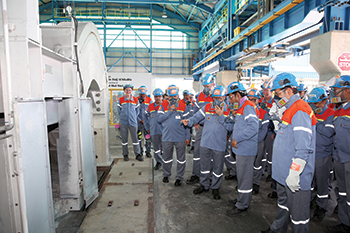
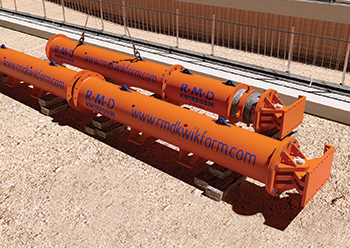 Tubeshor is suitable for deep excavations and basement propping with in-built safety features.
Tubeshor is suitable for deep excavations and basement propping with in-built safety features.
With formwork and falsework accounting for a significant cost on commercial building projects, RMD Kwikform (RMDK) has called on contractors in the region to give due consideration to selecting proper temporary works solutions to curb the costs of inefficiencies and help boost productivity on site.
In its recent white paper on commercial building projects, the global leader in formwork, falsework and ground shoring solutions indicated engineering contractors and consultants from across the region are looking to reduce labour requirements to increase productivity and cut costs. The survey of 135 contractors and engineering consultants worldwide found the two highest rated factors in increasing productivity were, first, the adoption of building methods that maximise labour; and second, the use of formwork and falsework systems that require less labour for assembly and dismantling. Labour productivity is a major opportunity to improve efficiency – whether freeing up workers for other tasks or speeding up activities, such as the management of formwork.
Spending on formwork and falsework typically accounts for five to seven per cent of a contractor’s annual revenue, which is a significant sum, according to a company spokesman.
He said this highlights the importance of properly considering temporary works solutions for commercial building projects and how they can help drive productivity while meeting required health and safety standards and keeping costs down.
Respondents to RMD Kwikform’s survey ranked ease and speed of erection, and labour hours required for assembly and disassembly, as the two most important features of temporary works. Weight, robustness and durability were also key factors for those working in the Middle East and North Africa (Mena) region. One general contractor from the region commented: “We prefer to have a formwork system that is easy to assemble, install and strike, and with the best finish.”
Asked how best to improve safety on commercial building projects, 58 per cent of the contractors and consultants cited the need for individual workers to take personal responsibility. A total of 48 per cent of the respondents stated that the second most important factor was for contractors to improve site conditions.
“The focus on individual responsibility as the most important factor in improving safety might be viewed as unexpected, but it is clear from the survey that contractors and others see a need for action on multiple fronts,” the spokesman said.
Regarding health and safety regulations, just 15 per cent thought regulations already in place were adequate.
RMD Kwikform ground shoring manager for Mena and India David White said: “The importance given in our survey to systems that are easy to use highlights the role that modern temporary works systems can play in curbing the escalating costs from inefficiencies. This was rated as more important than faster cycle times for concrete pouring and technology that frees up cranes for general site use.”
RMD Kwikform, which has been providing formwork and shoring solutions throughout the Mena region for almost 40 years – supporting some of its most impressive structures – has extended its expertise into the ground shoring sector as the number of groundworks projects and the demand for safe, simple and easy-to-use solutions continue to increase. Its ground shoring solutions include a range of trench boxes, manhole boxes and Tubeshor props.
White said RMDK’s range of ground shoring solutions is the most diverse in the marketplace.
“With our extensive network of branches and teams across the Middle East and India, we are able to supply our products to all regions – which have seen substantial growth in the groundworks sector – and deliver that ‘local service’ we’re recognised for.”
Furthermore, White said that RMDK’s design and advanced manufacturing techniques ensure each product is stronger, more durable, and easy to use, reducing labour requirements and maximising productivity.
“An example is the new Tubeshor prop, which has fewer components, more handling points and is primarily designed with the user in mind,” he added.
The Tubeshor tubular shoring range is suitable for deep excavations, basement propping and cofferdams, with in-built safety features. Additionally, the use of hydraulics for preloading means it can be installed, moved and dismantled safely, efficiently and in less time than comparable systems – saving time and money. The range is also available in three diameters and various lengths.
RMD Kwikform’s trench boxes can offer customers cost savings too, as time taken on site for assembly, installation and removal is significantly reduced when compared with alternative trench support systems and solutions. “To provide a straightforward box assembly, box panels and telescopic struts are built with simple ‘pin and clip’ arrangements. This enables easy adjustment for strut change overs and box panel extensions to achieve the required trench widths and depth,” he explains.
All RMDK equipment is manufactured in accordance with EN1090, from CE marked trench lining systems through to lifting and safety accessories.





















_0001.jpg)


.jpg)
















.jpg)








.jpg)



